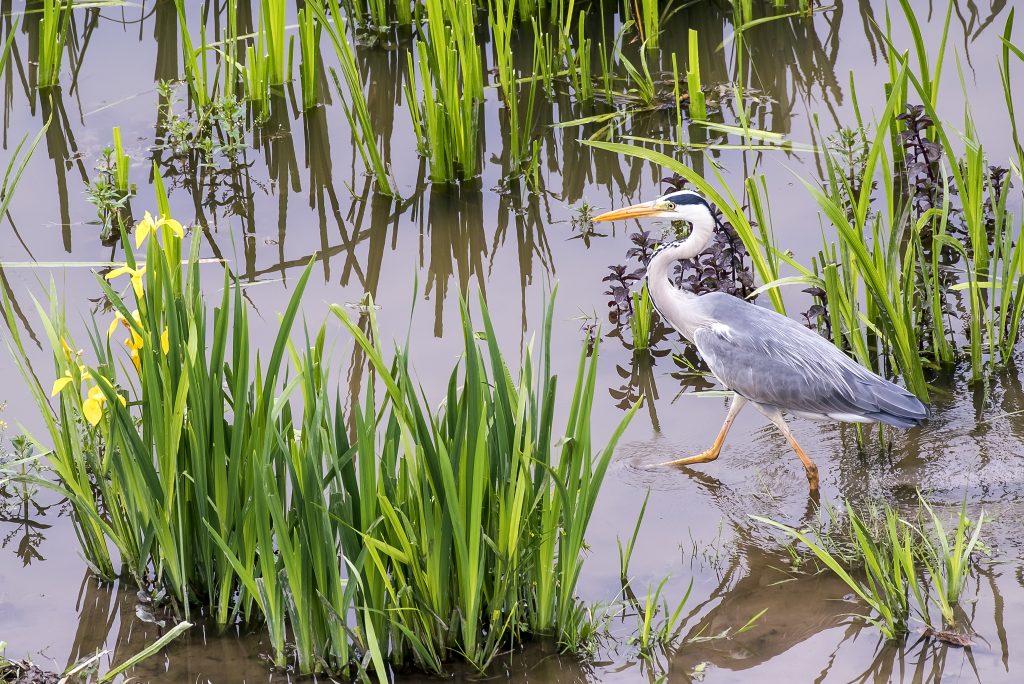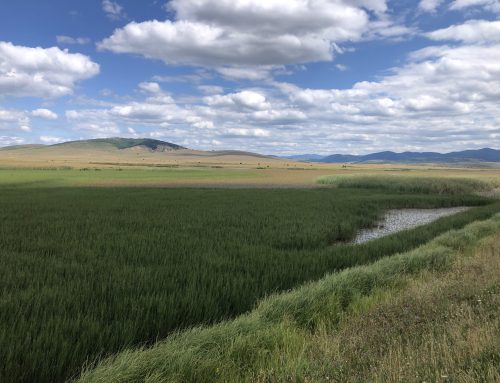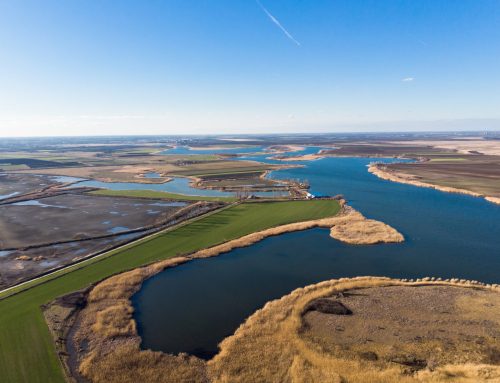Wetlands are one of the most sensitive ecosystems in the world, and their importance for people and nature is invaluable. Sara Pavkov, State Secretary for nature protection with the Ministry of Environmental Protection highlighted some of the key challenges for the preservation of these habitats, the importance of global- and national-level initiatives, and emphasized how a balance between development and preservation of natural resources can be struck.
What are the key challenges we are facing when it comes to the preservation of wetlands in Serbia?
Wetlands provide a number of ecosystem services of vital importance for people and the economy. They provide potable water, regulate the climate, reduce flood risks, and support biodiversity. However, 85 percent of wetlands globally have already been lost as a result of pollution, drainage, and invasive species, while climate change additionally threatens the remaining ecosystems. Wetlands in Serbia face similar threats, which is why more and more attention is given to their preservation.
At the global level, there are only few years left to achieve Agenda 2030 goals, and the Decade on Ecosystem Restoration (2021-2030) represents an opportunity to preserve and restore ecosystems that are vital for human life, and that are particularly sensitive to human influence.
By signing the Sofia Declaration on the Green Agenda for the Western Balkans on 10 November 2020, we took on a commitment to implement the Green Agenda as a road map with a series of concrete activities and measures to bring about economic growth in line with sustainable development principles.
| Kunming-Montreal Global Biodiversity Framework facilitates planning for protection, restoration, and sustainable use of wetlands, focusing on factors that lead to their loss. This framework facilitates the integration of goals intended to protect wetlands into national biodiversity strategies, thereby meeting commitments to the Convention on Biological Diversity (CBD) and the Ramsar Convention. Serbia is planning to include these goals it its new Nature Protection Programme, the development of which is coordinated by the Ministry of Environmental Protection. |
The Ministry of Environmental Protection is a key partner to the UNDP in implementing the “Protecting and investing in biodiversity and water for enhanced climate change resilience” project within the broader initiative “EU for the Green Agenda in Serbia.” How can a project such as this one contribute to solving the problems we are facing when it comes to the negative impact humans make on wetlands?
The global climate change and biodiversity loss crisis calls for an integrated approach since nature and biodiversity preservation are crucial to reduce emissions and adapt to the changed climate. Wetlands play a vital role in this, and hence their protection is a priority. All stakeholders, from governments to local communities, should reduce negative impacts, implement education efforts, and actively work on restoring these ecosystems.
The “Protecting and investing in biodiversity and water” project makes its contribution through applying innovative solutions for wetland preservation and connecting issues of biodiversity and climate change through the application of nature-based solutions.
In December 2023, the Government of the Republic of Serbia adopted a 2023-2030 Climate Change Adaptation Programme and Action Plan, that includes an action plan with a detailed analysis of climate change and forecasts for the future. This plan includes a climate change impact assessment on key sectors such as human health and safety, agriculture, forestry, transportation, infrastructure, energy, urban development, and biodiversity – with the aim of reducing negative impacts and strengthening the resilience of these sectors to changeable climate conditions.
| The Republic of Serbia declared 11 wetlands of international importance, with the total coverage of more than 120,000 ha. Ludaško jezero and Obedska bara were among the first to be declared, followed by Stari Begej – Carska bara, Slano kopovo, Labudovo okno, Peštersko polje, Vlasina, Gornje Podunavlje, Zasavica, Кoviljsko-petrovaradinski rit, and the Đerdap area, that was declared in 2020. Moreover, the first cross-border Ramsar area between Serbia and Romania – ‘Iron Gates – Đerdap Nature Park’ – was set up on 12 October 2023. . |
What are your expectations of the innovative wetlands preservation projects and solutions that will be supported by this project?
The goal of these projects is to implement innovative solutions to protect and preserve wetlands in protected areas. This will contribute to preserving biodiversity and water resources through active measures such as providing optimum quantities of water, connecting wetlands and revitalisation of degraded peatlands. Projects are focusing on applying concrete protection interventions in selected areas, which is also the main goal of biodiversity preservation.

How can the managers of protected areas be incentivised to solve problems related to the degradation of these ecosystems?
Primarily through strengthening capacities, planning, and implementing active protection measures. Managers can prioritise measures geared towards wetland protection, revitalisation, and restoration; they can monitor and reduce anthropogenic pressures; and develop management plans according to these priorities. Also, continuous strengthening of capacities will prepare them to implement innovative projects and activities contributing to the wetland and biodiversity preservation.
How can the need for development and the protection of critical ecosystems like wetlands be balanced?
The Ramsar Convention – an international treaty for the preservation of wetlands of global importance, especially as habitats for wetland birds – provides a key aspect of wetland protection. The main goal of this convention is wetland protection and sustainable use. Member states, including the Republic of Serbia, take on the commitment to protect and sustainably manage all wetlands within their borders, and to propose certain areas of international importance to be included in this convention’s list of wetlands of international importance (Ramsar areas).
Sustainable use of wetlands implies preserving their environmental character through applying an ecosystem approach and integrated management, which involves water management plans in a sustainable development context.
Furthermore, continuous improvement of water protection policies, including wetland protection, is essential. The key steps are: applying relevant legislation, increasing the number of Ramsar areas and other protected areas that include wetlands, and setting up national wetland inventories.
This interview was made as part of the “It’s not just a pond” campaign, implemented with the financial support of Sweden, represented by the Swedish International Development Cooperation Agency (Sida), within the “EU for Green Agenda in Serbia” project. This initiative is implemented with the technical and financial support of the European Union and in partnership with the Ministry of Environmental Protection by the United Nations Development Programme (UNDP), in cooperation with Sweden and the European Investment Bank (EIB), with additional funding provided by the governments of Sweden, Switzerland and Serbia.



